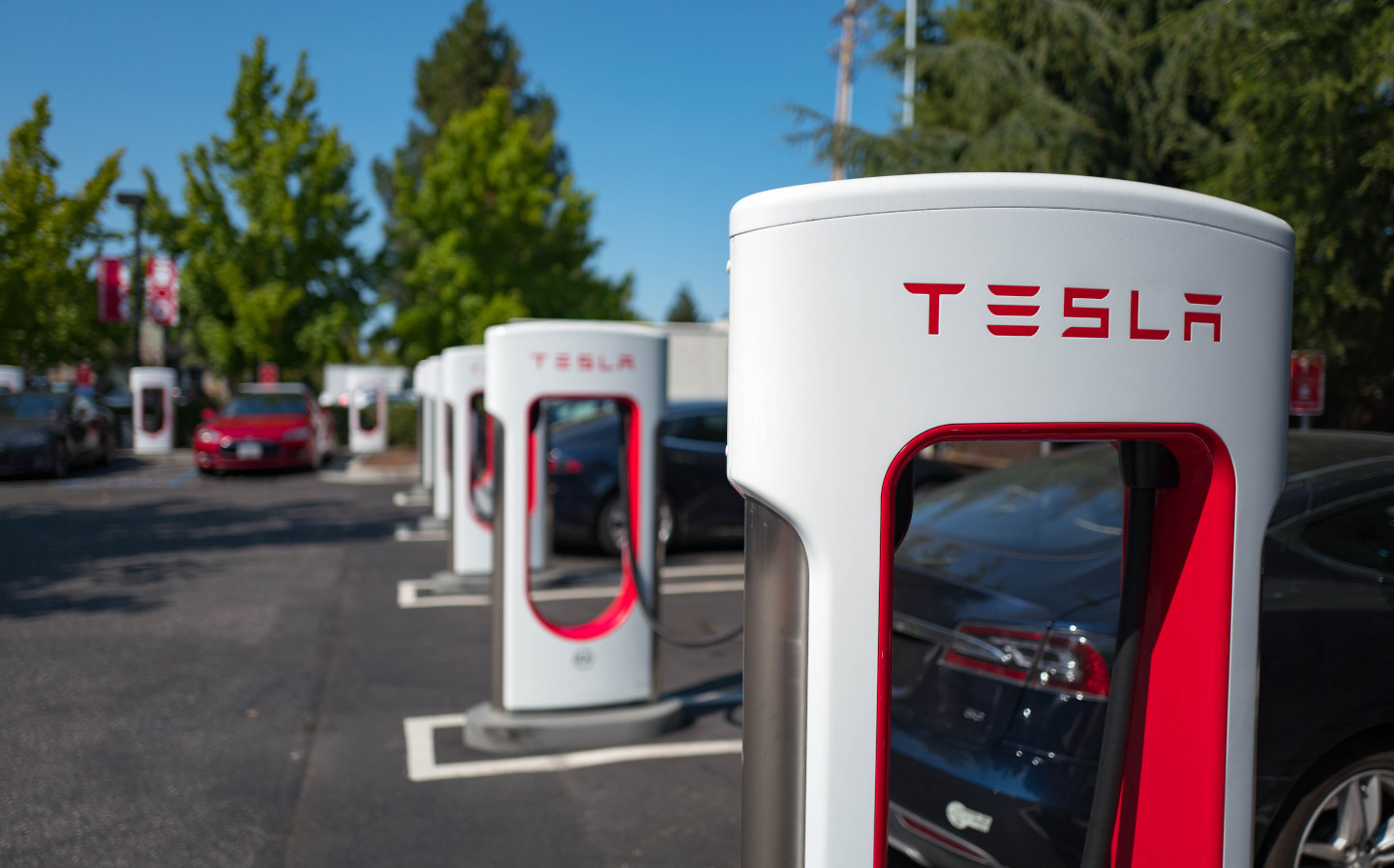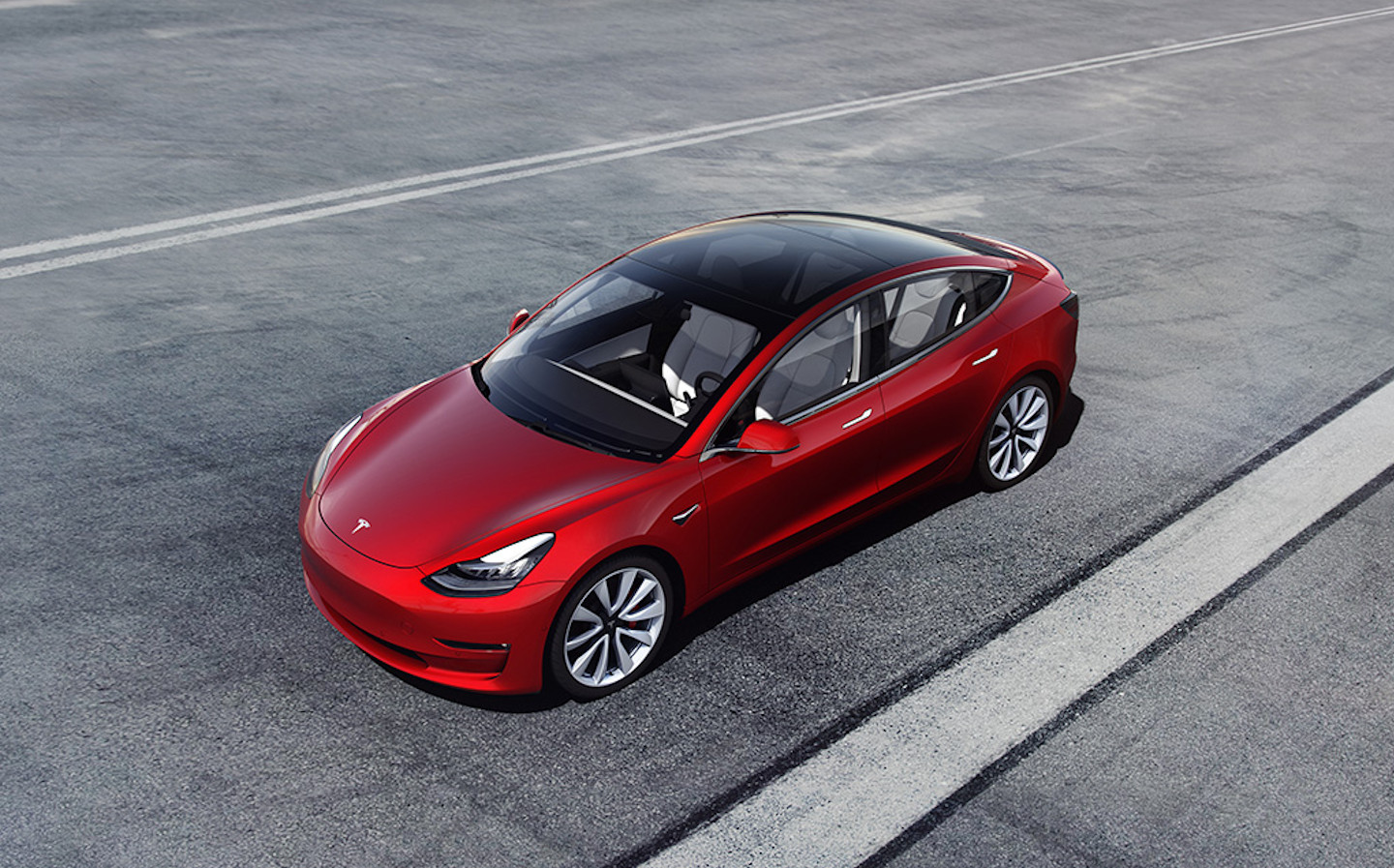Tesla now worth more than $1 trillion following Hertz rental car deal
Everybody, Hertz..
ELECTRIC car manufacturer, Tesla, has seen its market value exceed the $1 trillion (£723.6 billion) mark following an order from car rental firm Hertz for 100,000 vehicles by the end of 2022.
News of the $4.2 billion deal saw Tesla’s share price soar by 14.9% to £756.34, sending its value to $1.027 trillion and landing it in the exclusive club of just seven companies worldwide valued at more than $1 trillion. Other members include Apple, Amazon, Facebook, PetroChina and Google’s parent company, Alphabet. Tesla has, for some time, been the world’s most valuable car company.
The deal will see Hertz paying close to market price for the 100,000 well-appointed Model 3 saloons, a departure from rental companies’ usual strategy of exacting significant discounts from car manufacturers with large orders for slow-selling, lower-spec cars. The agreement also marks the largest single fleet purchase of electric vehicles to date.
Hertz’s order is equivalent to around 10% of Tesla’s yearly production output, meaning that the deal will potentially prevent other car rental firms from adopting a similar strategy when it comes to electrifying their fleets. Deliveries of the rental cars will likely be spread out over an extended period.

As well as giving customers access to the Tesla Supercharger network, Hertz is to begin building its own charging infrastructure.
Earlier this month Hertz appointed former Ford boss, Mark Fields, as interim CEO.
“Electric vehicles are now mainstream, and we’ve only just begun to see rising global demand and interest,” said Fields, speaking about the move.
The Tesla deal marks part of an ambitious turnaround for Hertz; following the collapse in global travel in the wake of the Coronavirus pandemic, the company filed for bankruptcy in 2020. With its acquisition by a distressed-debt hedge fund and a private equity firm and the rebound in international travel, Hertz’s figures, particularly its debt-to-equity ratio, have been going in the right direction, and the company appears to be on the road to recovery.
As ambitious as the deal is for Hertz, it’s an equally ambitious prospect for Tesla, a company currently struggling with a backlog of orders caused by supply chain issues, the global semiconductor shortage and other production bottlenecks.
This is illustrated by the fact that although the Tesla Model 3 was the UK’s best-selling car in September, an accolade that was achieved by a single, long-awaited boatload of cars arriving in the country. It was enough to influence and skew the monthly sales figures, however, the sporadic nature of deliveries means that despite Tesla remains well down the list of best-selling car brands for the year-to-date.

According to the company’s chief financial officer, Zachary Kirkhorn, reaching all of Tesla’s short-term production targets is contingent upon a resolution of these disruptions as well as an expansion of production at the company’s two new battery-making facilities in Texas and Germany.
Long-term, Tesla’s chief executive, Elon Musk, set an annual production and sales growth target of 50%, to eventually reach some 20 million vehicles per year — more than current market leaders Volkswagen and Toyota, which produced 9.3 million and 7.2 million vehicles respectively in 2020; Tesla produced 500,000.
The company recently announced that it had opened a new data and research facility in Shanghai in China to comply with a government directive that all data collected from vehicles in China must stay in the country. The regulations had, for a time, threatened Tesla’s operations in China, though it appears the new data facility may offer a resolution to that particular issue.
Tesla is also in trouble with the National Transportation Safety Board (NTSB) in the United States as the body investigates the company’s rollout of its “full self-driving” software which has led to a series of accidents in the US, some fatal. On Monday, the NTSB wrote to the company enquiring why it was continuing to roll out the software despite not having responded to the NTSB’s questions about the system’s safety.
The NTSB’s investigation is ongoing.
Tweet to @ST_Driving Follow @ST_Driving
- After reading that Tesla’s value has reached a record high, you might be interested to read about its latest new car, the Model Y
- Take a look at this Tesla Model 3 police car that has hit UK roads for emergency response trials
- See why petrol is now at its most costly for almost a decade





